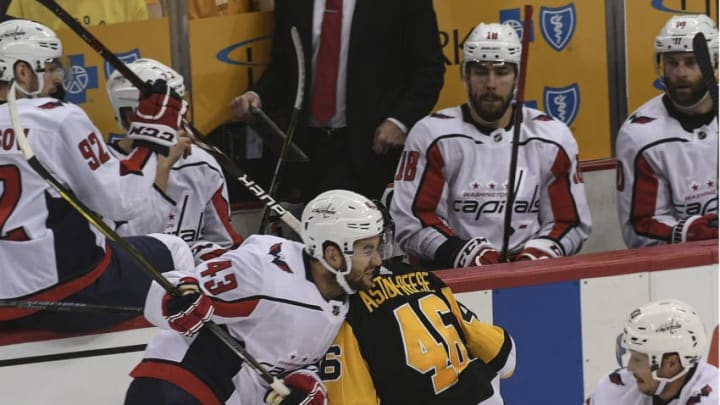Although fighting in the NHL has been on a steady decline since 2013, the number of games lost due to suspension remains stagnant in recent years. NHL Player Safety needs to step in.
According to the NHL Player Safety’s FAQ, a player is considered a repeat offender for 18-months following their most recent incident. Despite this fact, one’s past history extending past these 18-months may still be considered if deemed necessary.
Repeat offenders are fined based on the number of games lost due to suspension, relative to the offender’s 82-game salary. As per NHL.com, if the suspension is three games, the player loses 3/82nds of their salary.
More from Puck Prose
- Detroit Red Wings 2023 Rookie Camp Has Plenty of Ups and Downs
- This Columbus Blue Jackets rookie doesn’t want to be forgotten
- 2 trades the Boston Bruins must make to secure the Stanley Cup
- 3 reasons the Avalanche won’t win the Stanley Cup in 2024
- This is a big year for Alex Turcotte and the Los Angeles Kings
Although this can appear costly, it pales in comparison to the potential for a five percent annual salary fine-per-game, without exceeding 80 percent of a player’s total yearly salary. As much as they may deserve it, a ceiling cap is necessary in order to prevent potential bankruptcy.
Should the league explore more heavily weighted salary-adjusted fines for repeat offenders? Perhaps the current consequences are not steep enough to curb the culture that has become characteristically tolerant of these matters.
Follow Finland’s Footsteps
There is immense potential to curb these dangerous infractions despite the already steep penalties put in place by the NHL Department of Player Safety. A potential solution lies in taking a page out of Finland’s speeding ticket-scale.
Finnish traffic laws assert that speeding tickets exceeding the posted limit by 21 km/h and over are subject to fines based on one’s income. For those who earn more than the average person, such as NHL players, this can be a hefty amount.
Ironically, there are several prime examples of this in recent years, as both Leo Komarov and Alex Barkov have fallen victim to this facet of the Finnish transportation system.
In essence, the fines are meant to deter individuals from violating the law and seeks to exploit those who otherwise feel they can atone their actions with money. A similar concept can be applied to repeat offenders and their subsequent suspension fines.
Cause and Effect
For a problematic individual such as Tom Wilson, who inked a hefty six-year, $31 million ($5.16M AAV) contract this off-season, the repercussions would be felt most drastically in terms of the dollar amount.
As a repeat offender, Wilson already qualifies for significant fines but would surely think twice about forfeiting five percent of his annual salary-per-game under my proposition – which would cost an average amount of approximately $305,000 per game lost due to suspension.
In the rule’s current state, Wilson can only be fined a maximum of approximately $74,390 per game lost due to suspension, derived from his total $6,100,000 million annual salary. This represents his annual salary-per-game, over the course of an 82-game season, and does not have a ceiling cap. Keep in mind his salary and cap hit are two different amounts.
For fringe players on league-minimum contracts, the same terms apply under my proposed system. A five percent sanction of $650,000 is still extremely significant for a player in this position, considering it comes out to be $32,500 per game. Play stupid games, win stupid prizes.
Injury Compensation
Currently, all funds generated from disciplinary fines are attributed to the NHL Players’ Emergency Assistance Fund. Although this is a positive incentive, there should also be direct compensation for players who are forced to step back from the game, for however long, due to resulting injuries and health complications.
Throughout the league’s history, this would have been a valuable incentive to aid in the support of players forced into early retirement as a direct result of such safety and disciplinary issues.
Just some food for thought.
Suspension verdicts remain up to the interpretation of George Parros and the Department of NHL Player Safety, however, changes to the disciplinary system are desperately needed and should be strongly considered for the next Collective Bargaining Agreement. Not only will it greatly benefit the wellbeing of NHL players, but the overall reputation and scope of the league as the rate of suspendable actions gradually decrease.
